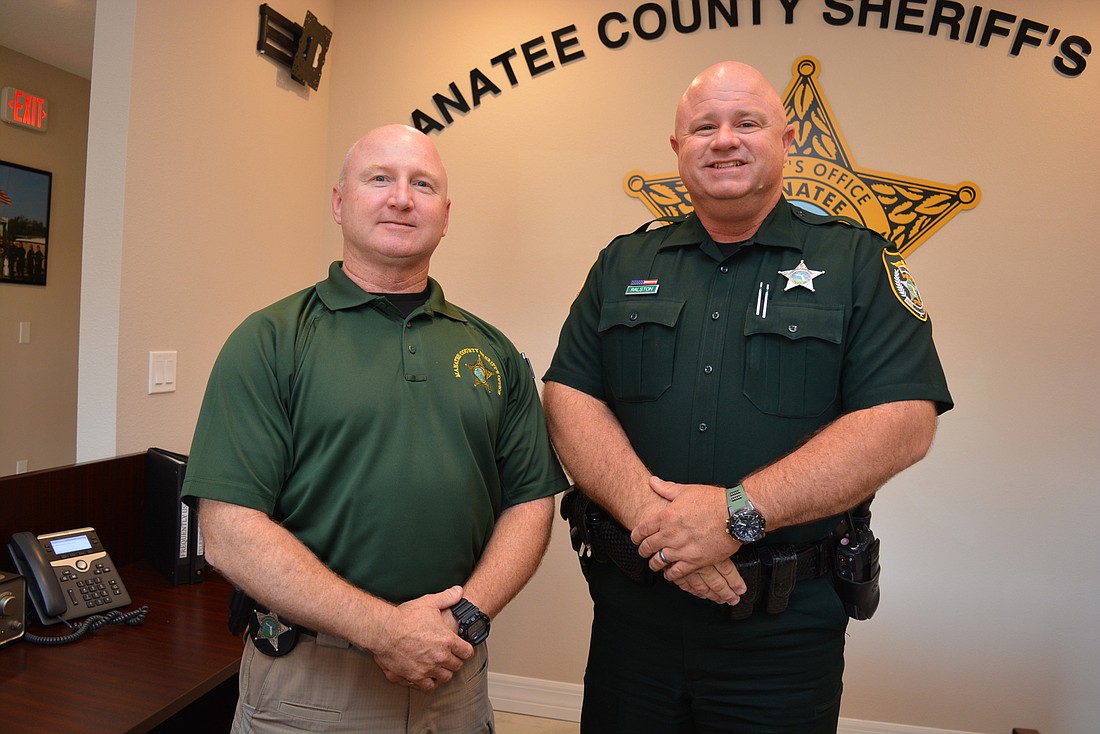- November 16, 2024
-
-
Loading

Loading

One year ago, Horseshoe Cove resident Rex Allen received an email from a longtime friend who was on vacation. He’d forgotten to purchase a present for his granddaughter’s birthday and asked Allen to buy $300 of iTunes gift cards and mail them to her.
Allen was more than happy to help. He bought three $100 gift cards and was supposed to send the code to register them for use.
“I thought about it more and more,” Allen said. “I didn’t go through with it.”
Allen’s hunch was right — he was a victim on internet fraud.
Manatee County Sheriff’s Office Crime Prevention Unit Dep. Christopher Ralston and Dep. Russ Younger said such
scams are on the rise and always changing although the Sheriff’s Office does not have specific numbers tracking how many fraudulent phone or internet scams Manatee County residents receive daily.
“It’s a multibillion-dollar epidemic,” Ralston said. “It’s getting reported more and more.”
Ralston, Younger and two other deputies in the Crime Prevention Unit spend their weeks visiting area mobile home parks and talking with homeowners associations or other groups who want to learn more internet and phone scams, or other crime trends.
During Younger’s weekly Thursday morning meeting with Horseshoe Cove residents April 18, Younger asked how many of the more than 50 people there had received scam phone calls. Everyone raised their hands. Several knew people who’d fallen victim.
Younger reminded them to be vigilant and avoid answering calls from numbers they don’t recognize and even from ones they do. With the prevalence of ID spoofing, when scammers make their phone numbers look like they belong to someone else, it’s best to call them back.
In March, the Sheriff’s Office itself became the subject of ID spoofing with residents reporting they were called by the Sheriff’s Office’s main number, 747-3011, and told there was a warrant out for their arrest. They needed to pay $1,000 to make the warrant “go away.”
Younger said neither the Sheriff’s Office nor other government agencies will contact the public in such a way. If there’s any doubt about the call’s validity, residents should get the agency’s name and contact it directly with questions.
“People have to do their own due diligence,”Ralston said.
Younger added: “The tactics these bad guys use — they’re very smooth talkers. It’s created to be believable. They create panic and a sense of urgency. People are so frazzled (they fall victim).”
Younger and Ralston said it’s important for people to pause and think about what is being asked of them. They said if anyone asks for money or gift cards, get more information and avoid giving out any personal information. If it’s a charity soliciting for money, research the organization and its phone number online.
“Don’t answer the phone if you don’t know who is calling,” Younger said. “If it’s someone who really needs you, they’re going to leave a message.”
Sheriff’s Office reports also show schemes to defraud such as fake rental housing listings on Craigslist, messages about open job positions on the “Google Hangouts” app and phone calls saying your computer needs to be fixed.
Younger and Ralston said schemes and phone numbers used for the scams change frequently, so they are difficult to track. The Sheriff’s Office investigates after money has changed hands. Schemes, however, can be reported to the Federal Trade Commission.